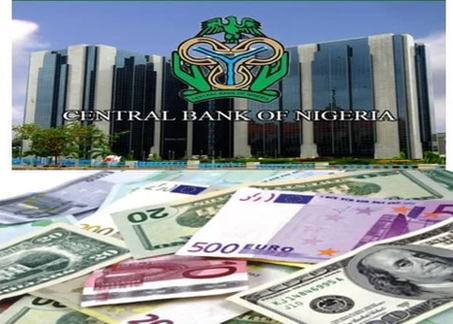Currency outside banks hits N2.35trn

Currency outside banks reached N2.35 trillion in September representing a 6.0 per cent month-on-month (MoM) rise when compared to N2.29 trillion in August 2023.
The Central Bank of Nigeria, CBN, disclosed this today in its Money and Credit Statistics data for September 2023.
This reflects the impact of the implementation of the Supreme Court order that old N200, N500, and N1,000 notes remain in circulation till December 31, 2023.
The implementation has also been reflected in currency-in-circulation which stood at N2.76 trillion in September, increasing MoM by 3.7 percent from N2.66 trillion in August.
Recall that part of the reasons for the Federal Government’s redesigning of the naira was to mop up excess cash outside the banking system and rein in inflation.
Meanwhile, the data showed that banks’ credit to the private sector rose MoM by 4.8 per cent to N58.6 trillion in September from N55.97 trillion in August.
However, credit to the government fell MoM by 1.2 per cent to N34.1 trillion in September from N34.5 trillion.
These resulted in a 2.5 per cent MoM rise in Net Domestic Credit to N92.7 trillion in September from N90.4 trillion.
The federal government has been borrowing heavily in recent years to finance budget deficits driven largely by recurrent expenditures.
The Managing Director, of Cowry Asset Management, Johnson Chukwu in a report titled: “Nigeria’s Economic Landscape; An Overview of Third Quarter 2023 (Q3’23)", said that the recent foreign exchange harmonization and revaluation effort by the CBN has further exacerbated the cost of debt servicing.
He added: “This is particularly concerning as Nigeria’s debt is denominated in both domestic and foreign currencies, rendering it vulnerable to external shocks, such as fluctuations in interest rates and exchange rates."
“Nigeria’s limited revenue base has remained a key driver of the escalating debt levels, which has raised apprehensions regarding the country’s ability to meet its debt obligations."
“Additionally, the high cost associated with servicing this debt has led to a substantial portion of government revenues being allocated to debt servicing.”
Related news

Adaora Umeoji becomes the first female Group Managing Director of Zenith Bank






High cost of transport: More goods, food items’re travelling than people on yuletide



127 poultries shut down, over N5bn, lost to economic hardship – Farmers lament
More news »
Latest Posts

Top 5 best cheapest and fastest VPS hosting providers

What is remote work? (Meaning, Examples, Type, Pros and Cons)

How to become a professional Writer, (step-by-step guide)

Tips for becoming a successful public speaker, and monetizing your skill

ATBU shut down campuses after students’ protests
More Posts »